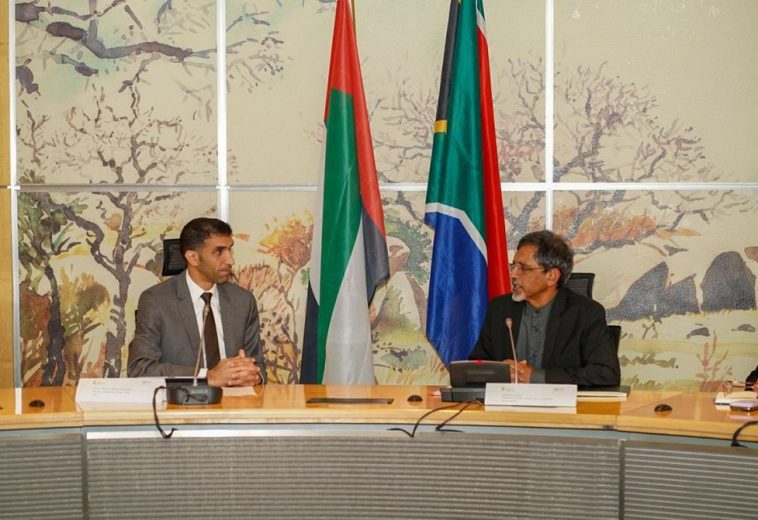Africa’s judicial systems have made significant advances in recent decades, spurred by both grassroots and institutional efforts. With several countries leading reform and cases that have stirred public faith in judicial systems, the continent’s journey towards legal transparency, independence, and equitable justice is remarkable. As regional and national courts take on greater responsibility, their role in securing human rights has grown stronger, although substantial challenges still loom.
Rise of Regional Courts
One significant step toward judicial independence in Africa is the establishment of the African Court on Human and Peoples’ Rights (AfCHPR) in 2004. Based in Arusha, Tanzania, the AfCHPR promotes human rights and provides recourse for individuals who cannot obtain justice in their own countries. Although the court has issued influential rulings, only 31 of the 55 African Union member states have ratified its founding protocol, and even fewer permit direct citizen access to the court.
Tanzania and Political Rights
In 2016, Tanzanian opposition leader Ally Rajabu challenged Tanzania’s election laws at the AfCHPR, arguing that they restricted citizens’ political participation. The court ruled in his favour, finding that Tanzania’s restrictions on independent candidacies violated democratic rights. This decision was a landmark in reinforcing electoral rights across Africa. However, Tanzania later withdrew individual access to the AfCHPR, underscoring the delicate balance between national sovereignty and the court’s authority.
National Judiciary Transformations
On a national level, several African countries have enacted substantial judicial reforms to enhance access to justice, accountability, and legal representation for marginalised communities. Significant cases in Kenya, South Africa, and Ghana illustrate a shift towards independent, transparent courts willing to challenge political powers.
Kenya’s Annulled Election
Kenya’s 2017 presidential election marked a milestone in judicial independence. The Supreme Court, led by Chief Justice David Maraga, annulled the initial election results due to irregularities and ordered a new election. This courageous ruling underscored the judiciary’s autonomy from political pressure and was hailed internationally, establishing Kenya as a beacon of democratic integrity in East Africa. However, the decision also heightened political tensions, illustrating the risks associated with judicial independence in politically charged cases.
South Africa’s Battle Against Corruption
South Africa’s judiciary, particularly the Constitutional Court, has played a pivotal role in fighting government corruption. Recent rulings against former President Jacob Zuma, including a 15-month prison sentence for contempt of court, reinforced the judiciary’s commitment to holding powerful figures accountable. These verdicts boosted public confidence in the judiciary and cemented its role as a defender of democracy.
Judicial Challenges Across Africa
Despite these advancements, African judiciaries still face significant obstacles, including political interference, limited funding, and infrastructural challenges. In Nigeria, judicial corruption remains a persistent issue, undermining public trust. The Judicial Panel of Inquiry on Police Brutality, set up in response to the #EndSARS protests, exemplifies both the potential and limitations of Nigerian courts. While the panel documented extensive rights abuses, political resistance has hindered legal recourse for many victims, highlighting the tension between judicial efforts and executive power.
Nigeria’s Judiciary and the End SARS Movement
In 2020, Nigerian youth led the #EndSARS protests against police violence, prompting the formation of the Judicial Panel of Inquiry to investigate abuse claims. The panel’s findings revealed widespread rights violations, but political resistance has stalled justice for many affected individuals, illustrating the judiciary’s struggle to confront systemic issues rooted in political and law enforcement institutions.
Expanding Access to Justice
To bridge gaps in access to justice, some African countries have introduced mobile courts and digital case management systems. In Uganda, mobile courts have expanded legal access for remote communities, enabling them to seek legal redress more easily. Rwanda and Ghana, meanwhile, have implemented digital systems to expedite case processing and improve transparency, reflecting broader moves to modernise judicial systems across Africa.
Rwanda’s Digital Justice Reforms
Rwanda’s judiciary has pioneered digitalisation, allowing citizens to file cases and monitor progress online. These innovations have reduced case backlogs and increased efficiency, strengthening public confidence in the judicial system. Rwanda’s approach is seen as a model for other countries aiming to modernise and improve access to justice.
The Way Forward: Strengthening Judicial Accountability
Civil society organisations (CSOs) across Africa play a vital role in promoting judicial accountability and exposing systemic abuses. Groups such as Amnesty International and local organisations actively advocate for reform, support public interest litigation, and assist marginalised communities in seeking justice. For instance, the African Coalition for Human Rights provides legal support across the continent, amplifying the voices of those without access to representation.
African governments increasingly acknowledge that a fair judiciary is essential to sustainable development and stability. Many are aligning judicial reforms with the United Nations Sustainable Development Goal 16, which promotes justice, peace, and strong institutions globally. As Africa’s judiciary evolves, it faces the challenge of balancing traditional practices with innovative solutions to meet modern demands. While the journey toward judicial equity remains unfinished, the progress achieved so far provides a solid foundation for Africa’s continued efforts to secure rights for all.
The gains in judicial reform across Africa demonstrate the continent’s commitment to justice and human rights, even amid considerable obstacles. Through national reforms, regional courts, and civil society activism, Africa’s judiciary is steadily transforming into a powerful advocate for democracy, accountability, and social equity.
The judicial gains seen in Africa exemplify the continent’s commitment to justice and human rights, even in the face of substantial obstacles. Through the combined efforts of national reforms, regional courts, and civil society, Africa’s judiciary is gradually reshaping itself into a powerful force for democracy, accountability, and social equity.


















